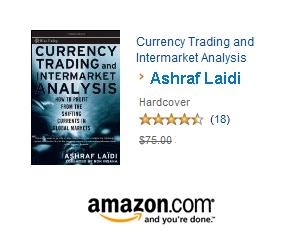Forum
Posts by "macrosam"
189 Posts Total by "macrosam":
5
Posts by Anonymous "macrosam":







If anything, the extension of the full allocation repos beyond year-end would depress EUR because it is a source of excess liquidity, or more liquidity than normally would have been available. That is not something that would be supportive of EUR strength from a supply-demand metric.
Sorry for the delayed response, but the answer is that the Fed does not have to. There is more than enough investor appetite, both domestic and foreign. The ECB has to buy garbage that few others would touch.
http://www.bloomberg.com/news/2010-09-17/international-buyers-increase-u-s-muni-bond-holdings-15-to-83-billion.html
The reason once again goes back to what I have been stating repeatedly, though in different hues. Foreigners have to redeploy their long USD back into the US in order to sterilize the appreciative effects on their own currencies. If they do not do this, then they must be prepared to redeploy those USD into other currencies or assets (USD denominated assets). But then that recipient nation must be willing to either absorb the US's deficit with that capital exporting nation or in turn reallocate that capital back into the USD via US Treasury or asset purchases in order to sterilize the impact on their own currencies. No one currently (or normally) wants to absorb another nation's deficit. With Europe being unable to sustain its deficit, the US is being leaned into even more heavily, hence the continued bid in UST and other US assets. We've already seen Japan's unwillingness to absorb the US's deficit with China after China decreased UST holdings and increased JPY and JGB purchases. No one wants to absorb that deficit. This is also why USD bears do not see the big picture. The world reserve currency, by its nature, must be provided in excessive supply to meet the world's demands. This necessary excessive supply along will bring many to question its soundness. If there is not ample supply of that world reserve currency, you will have deflation and depression resulting from what essentially is a destruction of money supply, a la what drove the downfall of gold as a currency or as a currency peg (limitations of physical supply in regards to its application towards both tangible and intangible value).
I don't antipate EUR/USD to get back above 1.30 for anything longer than a cup of coffee, but I am waiting and watching as the uncertainty during these times is hard and technicals are making me lean towards further downside in EUR as it appears we are at a near term top (from off the 1.26 recent lows). I will be patient and let things play out as my timing has been a bit off recently.
Export driven sovereigns then attempt to redirect these flows into USD and EUR as those are the two deficit regions (Eurozone excluding Germany, that is). UST and US equities will be the destination for these purchased USD. Euro zone bonds will have a bid as well from these sovereigns in order to essentially fund their customer base. No one wants to assume someone else's trade deficit so all is being done to prop up the export customers ability for consumption. EUR will fail once concerns are revisited, as they are manifesting at this moment. The ECB extension of the full allocation repos into 2011 are not due to US double dip concerns, rather capital funding concerns for Greece, Ireland, and Spain. The austerity measures in these nations will result into the respective citizens resorting to not only reduced savings, but a depletion of existing savings, i.e. a depletion of these banks' deposit based capital. Any additional crises will inspire a run on these banks as a result as the citizens are not generating the income and cash flow to cope with their austerity.